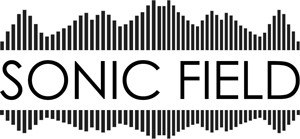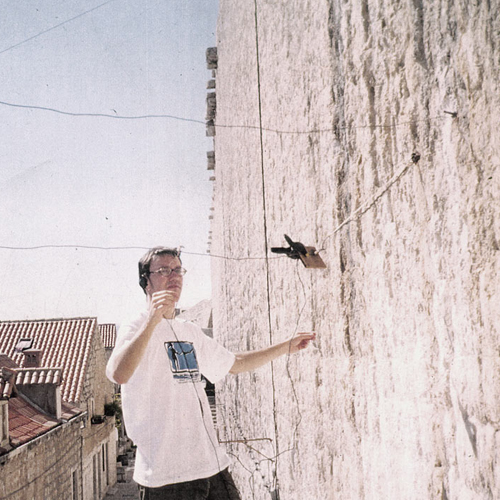Letter from John Grzinich
Yesterday I received a letter / manifesto from John Grzinich about some articles and topics discussed recently in The Field Reporter. I am going to publish it order to continue the series of exchanges prompted by our journal in regard to the practice with sound, trying to keep an open discussion that hopefully will be equally helpful to the artists and to the audience.
I advice to our readers to follow us on Facebook and Twitter where there is further discussion space in regard of the line of work and all the aspects that it conveys.
-David Velez
‘Dear Listeners,
This started out as a simple response to the recent commentaries posted by David, Simon and others, but turned into something of a personal essay and manifesto. As others have said, I am open and encourage others to respond and look forward to see where things go with TFR‚
Some notes on the bigger picture
Having used ‘phonographic’ elements in my work for nearly 20 years, I certainly don’t feel any need for more theorists, critics and institutional validation. While I always welcome constructive reviews of my work, it always happens after a work is completed and is never a major influence on the creative process. For me the validation of ones work by so called ‘official’ channels is usually a political layer of the ‘art world’ that more or less defines the mechanisms of status and control, something that rarely seems to help the practice itself, often doing more harm than good. You can clearly see it in how the festival circuit is run and how exhibition culture develops, always needing the ‘next big thing’ or ‘big names’ to legitimize their activities (mostly to get money). This leaves the rest to take on some sort of darwinian struggle to get to “the top” wherever that is. “Field Recording” has become another buzz term that people casually use as much as an overly abused practice as people struggle to figure out what it is without stopping to think about it. And why not? Its easy, right? Anyone who picks up a $100 Zoom recorder can do it these days, and publish it for the world to hear, which only waters down an already murky pool.
Meanwhile I have noticed a more serious and long-term shift happening in the academic/educational sector. More and more universities are now developing and offering ‘sound studies’ programs, which is raising the bar in terms of a need for defining an academic discourse. While this might seem threatening to anyone who is an independent, I don’t see it as something inherently negative. While there will always be the tendency toward specialization, the interest in sound is branching out across many disciplines from music and art, into architecture, urban studies, anthropology, geography and over into pedagogy, psychology and the cognitive sciences. Phonographic practice will be taught in every media 101 course and there will be no ‘history of phonography’. Regardless of where these studies go and who uses them, my hope deep down is that all this new activity will help promote a culture of listening, in a way that opens up the long forgotten sense of hearing. This is getting slightly off topic but my point is it helps to look at the wider context of things rather than focusing on the microcosm of what is more or less a niche genre (and what many fear is becoming a standardized format).
In some ways actually nothing has changed for me over the years except the terminology. In the mid-90s we were saying ‘I guess we’ll call what we’re doing “experimental music” for lack of a better term’, but that didn’t feel right because we weren’t musicians or trained composers. Then in the early 2000s there was (and still is) the pressure to call it “sound art” even though art still essentially means ‘contemporary visual art’ in the western world. And the situation seems to have degraded using the terms “phonography” and “field recording” which describe methodologies for capturing sound more than anything else, but has somehow evolved into a genre of music (hence the music journalism trap). Yet what remains consistent with this ongoing situation is simply the difficulty and sheer challenge to describe anything and everything that has to do with working with sound as a raw (immaterial) material. The list of literature on sound is growing, however I find it hard to relate to much of it. Either I’m told I strictly have to quantify sound purely in numbers, moralize it as good or bad, dream about it through cosmic metaphors, or bow in humble respect to this forefather or that. Most of this I feel I do anyway through everyday seeking, listening, recording, re-listening, editing, re-editing and sharing, but rarely do I feel it necessary to take any of these aspects of sound and transform them into ideological trajectories.
So beyond the surface hype and misconceptions, what’s possibly the most important thing is happening right here, is that these existential yet critical discussions between a random group of individuals, are (finally?) happening in a more public but still personal manner. Simon made this point through raising the substance question, “private and personal” vs the “glossy conceptual” and asked himself what is it that he finds more meaningful -what he really hears in a release or that it comes from this label or that artist. I think this personal side of things is what makes those who contribute work to, write for and follow The Field Reporter unique and special. And while we all may desire greater recognition, validation etc, outsourcing these things to ‘officials’ often overrides the more subtle and delicate (and difficult) aspects of responding to each other directly as practitioners, which sort of brings me to my main point‚Ķ If anything lacks, its a genuine social atmosphere and support for intentional gatherings of active practitioners, that is people who do the work, enjoy it and even use it as a means to connect with others. This is why I’ve also worked hard to help develop a residency and cultural space geared toward collaboration, social integration etc (moks.ee). Simon has done something similar with his Active Crossover series and I’ve been grateful to have participated in some good festivals that break the formats. These ‘side elements’ act as a complimentary component to the existing practices which has always strengthened the work of the practitioners in my experience. And that’s generally more support and validation than any philosophy or critic can give, because its usually what keeps the practice alive.
So please, keep the Field Reporter going, but to everyone -don’t just focus on making nice CD/Download releases, push yourselves and organize meetings, seminars, workshops, festivals, residencies, field trips, listening sessions, etc… anything that brings people together offline and out in the field of life.
-John Grzinich. January 28th of 2013′
[Photo: Everyday sounds? listening to laundry wires, Dubrovnik 1998]
* The Field Reporter only claims responsibility for the material written by its editorial team.


